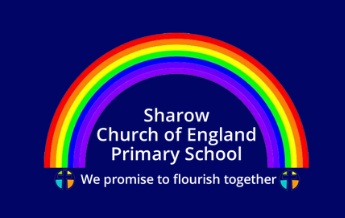Our school intends to provide a curriculum which caters for the needs of all individuals and sets them up with the necessary skills and knowledge for them to become successful in their future adventures. We aim to prepare them for a successful working life. We incorporate sustained levels of challenge through varied and high-quality activities with a focus on fluency, reasoning and problem solving.
Pupils are required to explore maths in depth, using mathematical vocabulary to reason and explain their workings. New mathematical concepts are introduced using a ‘Concrete, Pictorial and Abstract’ approach; enabling all children to experience hands-on learning when discovering new mathematical topics, and allows them to have clear models and images to aid their understanding.
We encourage resilience, adaptability and acceptance that struggle is often a necessary step in learning. Our curriculum allows children to better make sense of the world around them relating the pattern between mathematics and everyday life.
Underpinned By:
- High expectations- All children are expected to succeed and make progress from their starting points.
- Modelling- Teachers teach the skills needed to succeed in mathematics providing examples of good practice.
- A vocabulary rich environment- We intend to create a vocabulary rich environment, where talk for maths is a key learning tool for all pupils. Pre-teaching key vocabulary is a driver for pupil understanding and develops the confidence of pupils to explain mathematically.
Curriculum
Our maths curriculum provides breadth and balance, is relevant and engaging and is differentiated to match the needs and abilities of all our children to ensure that all pupils are able to succeed.
From Reception to Year 6, we adhere to our calculation policy which outlines the progression of strategies and methods to be taught. Children follow the scheme of ‘White Rose Maths’ which supports children in learning the fundamentals behind the meanings of numbers and exploring other key mathematical areas. Our maths curriculum is also supported through the implementation of resources from NCTEM.
White Rose use ‘small steps’ to break down the teaching sequence into small achievable steps. Where children require additional support, ‘scaffolds’ are used to support children further to ensure that they have secured the small step before moving on. These ‘scaffolds’ may be in the form of returning to concrete resources or pictorial representations. For children who understand a concept quicker, challenges are used to deepen and challenge learners further within the curriculum area.
Progression documents such as our calculation policy are carefully used to ensure that children are not being stretched outside their year group but rather deepened within it.
Within daily teaching, children will be reminded/taught stem sentences linked to previous/current learning which will constantly be referred to within the lesson. They will have many opportunities to apply these stem sentences; modelling will support children in developing their ability to reason and explain their answers using them.
Times tables play an important part in our maths learning. From Year 3 children follow a times tables fluency programme; the programme develops recall of 36 core multiplication facts. Fluency in these facts provides the foundation for all written and mental multiplication and division. New facts are introduced and taught visually through the conceptual lessons, and aurally through the chanting of verbal sound patterns. Facts are learned to fluency through daily practice sessions with scores tracked daily and targeted support provided where needed.
Concrete Pictorial Abstract (CPA)
We implement our approach through high quality teaching delivering appropriately challenging work for all individuals. To support us, we have a range of mathematical resources in classrooms including Numicon, Base10 and counters (concrete equipment). When children have grasped a concept using concrete equipment, images and diagrams are used (pictorial) prior to moving to abstract questions. Abstract maths relies on the children understanding a concept thoroughly and being able to use their knowledge and understanding to answer and solve maths without equipment or images. We also use real life contexts so children can understand the purpose for learning the maths concepts. Children are encouraged to use manipulatives across all year groups; all abilities. They are exposed to visual representations of different kinds that helps them to make connections between the practical and the abstract.
Online Maths Tools
In order to advance individual children’s maths skills in school and at home, we utilise PurpleMash and TTRockStars for multiplication practise, application and consolidation.
Assessment
Daily assessment is incorporated throughout the lesson through live and verbal feedback. Where children require additional support, ‘Closing the Gaps/Booster’ sessions are used to support children ensuring that they are ready for the next ‘small step’. Termly assessments are used as a diagnostic tool to ensure that teachers are adapting learning to meet the needs of all children and ensure that any necessary interventions are targeted specifically to meet the needs of children.
Parent Support Booklet: EYFS Prompts
Parent Support Booklet: Y1 Prompts
Parent Support Booklet: Y2 Prompts
Parent Support Booklet: Y3 Prompts
Parent Support Booklet: Y4 Prompts
Parent Support Booklet: Y5 Prompts
Parent Support Booklet: Y6 Prompts
EYFS/KS1 Maths Parents Information Evening slides
Maths: Intent, Implementation & Impact
Whole School Progression: KIRFs
